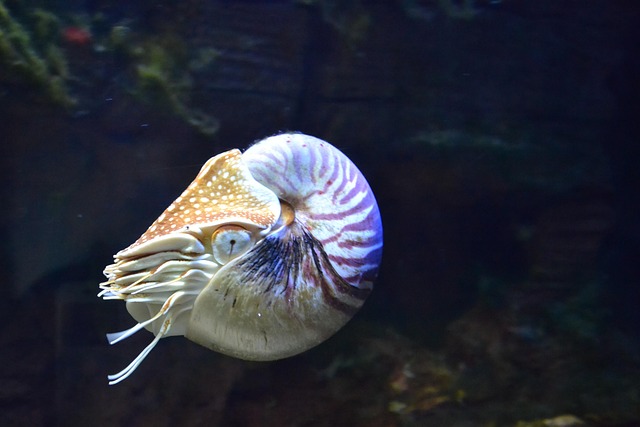Zen aesthetics revolutionizes aquarium design with its emphasis on underwater habitat design reflecting natural tranquility. By incorporating simplicity, harmony, and natural elements like wood and stone, these aquariums become art pieces that foster relaxation and introspection, inspired by Japanese garden principles. This minimalist approach, known as "zen aquariums," combines aesthetic appeal with overall well-being through calming atmospheres, blending functionality with natural beauty in underwater habitat design.
Discover the serene beauty of Zen and Japanese-inspired aquariums, perfect for creating tranquil underwater habitat spaces in your home. This article explores the art of merging minimalism and natural elements, offering a calming escape from daily life. From exploring Zen aesthetics to key Japanese design influences, we guide you through crafting an aquatic sanctuary. Learn how nature-based aquarium designs not only enhance aesthetics but also bring mental peace, making your underwater habitat a soothing retreat.
Exploring Zen Aesthetics in Aquarium Design
Zen aesthetics, with its emphasis on simplicity and harmony, has beautifully influenced aquarium design, creating serene underwater habitats that reflect the tranquility of nature. This approach prioritizes clean lines, natural materials, and a minimal color palette, transforming aquariums into living works of art. By incorporating key Zen principles, such as balance, symmetry, and the integration of natural elements like wood and stone, designers can craft spaces that invite relaxation and introspection.
Japanese-inspired aquariums often embrace minimalism, focusing on creating a sense of open space and tranquility. This is achieved through thoughtful placement of decor, including the use of floating plants, wooden ornaments, and smooth stones, which mimic the natural landscape. The goal is to evoke a peaceful atmosphere akin to wandering through a serene Japanese garden, providing an escape from the bustling world outside. Such designs not only offer visual appeal but also contribute to the overall well-being by fostering a calming environment in any living or working space.
Key Elements of Japanese-Inspired Aquariums
Japanese-inspired aquariums, often dubbed “zen aquariums,” focus on creating a serene and harmonious underwater habitat design that mirrors the principles of Japanese esthetics and philosophy. Key elements include minimalism, natural materials, and an emphasis on balance and symmetry. The use of fine gravel or moss as a substrate mimics the traditional Japanese garden style, while strategically placed rocks and wood additions serve as focal points, evoking images of tranquil streams or serene mountainsides.
These aquariums often feature clean lines and simple aesthetics, with careful consideration given to water flow and lighting. Subdued lighting schemes, typically employing LED lights, enhance the calming atmosphere by highlighting the natural colors of plants and aquatic life. The overall goal is to create an underwater oasis that fosters relaxation and contemplation, reflecting the Japanese appreciation for simplicity, nature, and tranquility.
Creating Tranquil Underwater Habitat Spaces
Creating tranquil underwater habitat spaces involves a mindful blend of aesthetics and functionality. Japanese-inspired aquariums, often featuring minimalist and zen designs, excel at cultivating peace and serenity. These setups typically incorporate natural elements like rocks, wood, and plants, which not only enhance visual appeal but also provide essential habitats for aquatic life. By carefully arranging these components, aquarists can mimic the soothing landscapes of Japan’s rivers and streams, fostering a calm atmosphere within the aquarium.
Underwater habitat design in zen aquariums emphasizes simplicity and balance. Clean lines, ample negative space, and a focus on organic textures contribute to a sense of harmony. The gradual transition from light to dark hues in the tank’s background mimics the natural depth found in serene water bodies. Additionally, strategically placed lighting can highlight specific features while keeping overall illumination soft, further emphasizing tranquility. This thoughtful approach to aquarium design not only delights the senses but also fosters a deeper connection with nature, making these aquatic retreats true oases of calm in any space.
Benefits of Nature-Based Aquarium Designs
Nature-based aquarium designs, such as Zen and Japanese-inspired aquariums, offer a unique blend of aesthetic appeal and profound psychological benefits. The concept of an underwater habitat design that mimics natural landscapes provides a sense of tranquility and harmony. Unlike traditional aquariums with stark, man-made structures, these styles incorporate organic elements like rocks, plants, and wood, creating an environment that resembles a serene natural setting. This visual similarity to actual underwater ecosystems has been proven to reduce stress levels and promote relaxation in viewers, making them ideal spaces for unwinding after a long day.
Furthermore, the calm and orderly presentation of these aquariums encourages mindfulness and meditation. The gentle flow of water, combined with the tranquility of living creatures going about their business, fosters a meditative state. This is particularly beneficial in today’s fast-paced world where stress and anxiety are prevalent. By immersing oneself in such an environment, individuals can experience a profound connection to nature, enhancing their overall well-being.
Zen and Japanese-inspired aquariums offer a unique way to bring tranquility and natural beauty into our homes. By incorporating key elements such as minimalist design, natural materials, and carefully curated underwater habitats, these aquariums create a peaceful sanctuary that enhances well-being and fosters a deeper connection with nature. Whether you’re an aquarium enthusiast or simply appreciate aesthetically pleasing spaces, embracing this style allows you to cultivate a serene environment that enriches your daily life.
